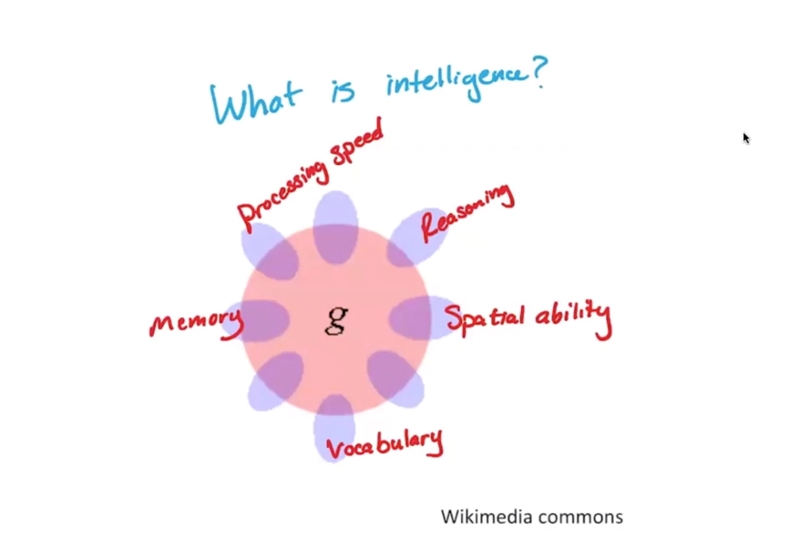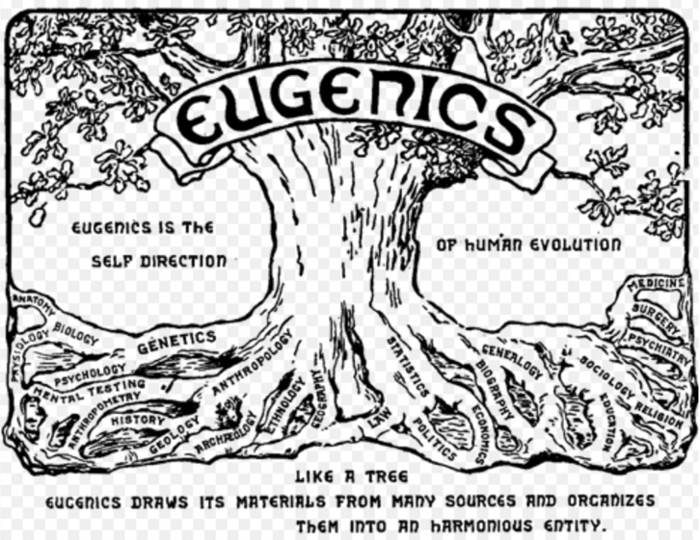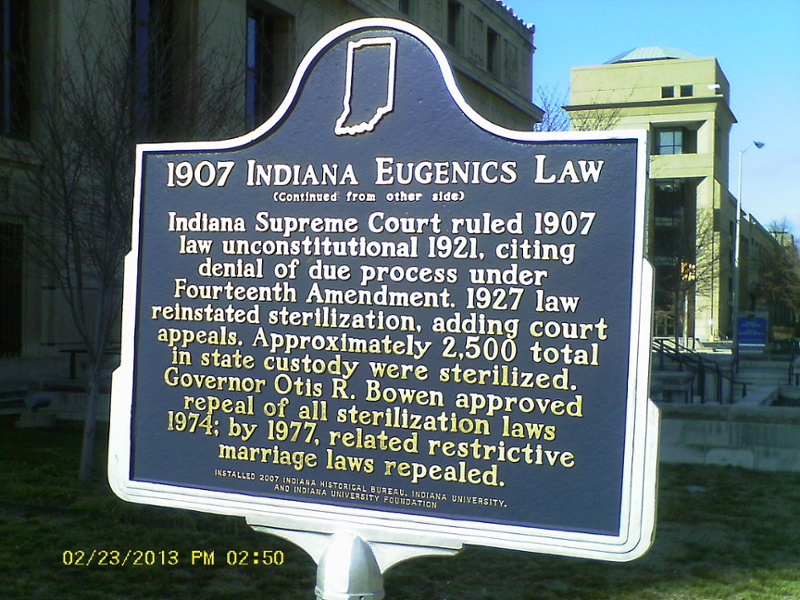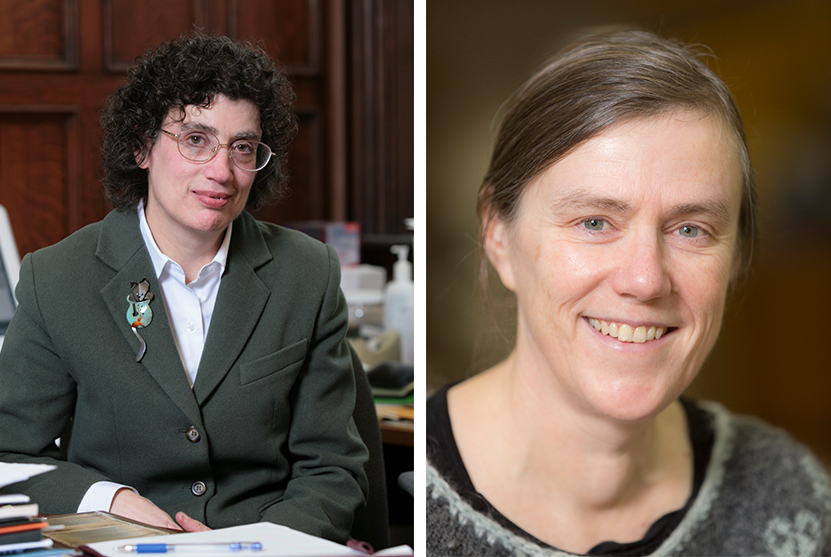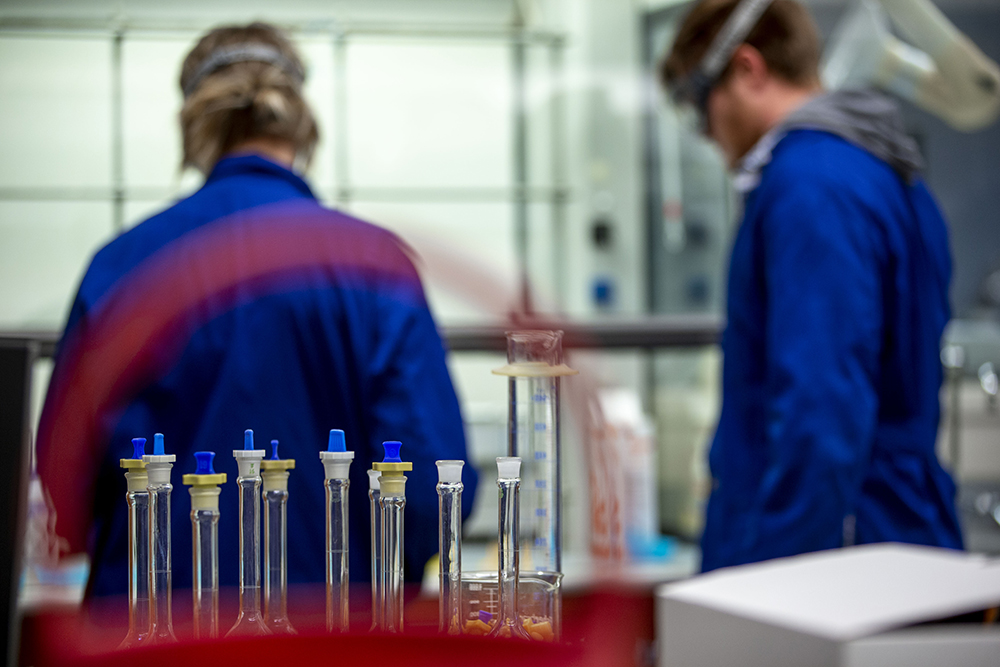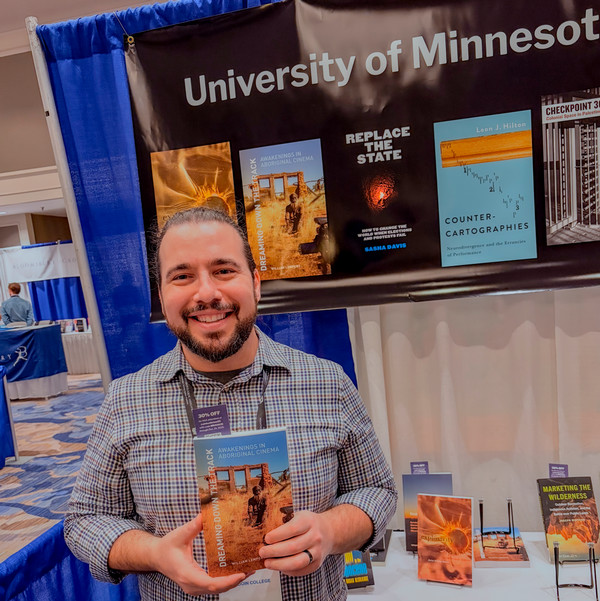Seminars Explore the Immorality of the Eugenics Movement and Its Implications Today
By Tom PorterScientists need to get used to the idea that they have responsibilities that go beyond the laboratory, or beyond their latest research paper, say Professors Hadley Horch and Barry Logan.
A number of Bowdoin science faculty met remotely over the summer, said Horch, a neuroscientist, and started discussing the role scientists could play in the struggle for social justice. “Prior to those talks, my attitude was ‘I teach neuroscience, and in class we cover action potentials, sensory systems, and animal behavior. What’s that got to do with Black Lives Matter?’ But the more I thought about it,” she explained, “the more it became a harder position to defend. When you consider who has been at the table when experiments are planned and ethical decisions are made, it seems we need to look at our history a little more to better understand the power structure issues within science."
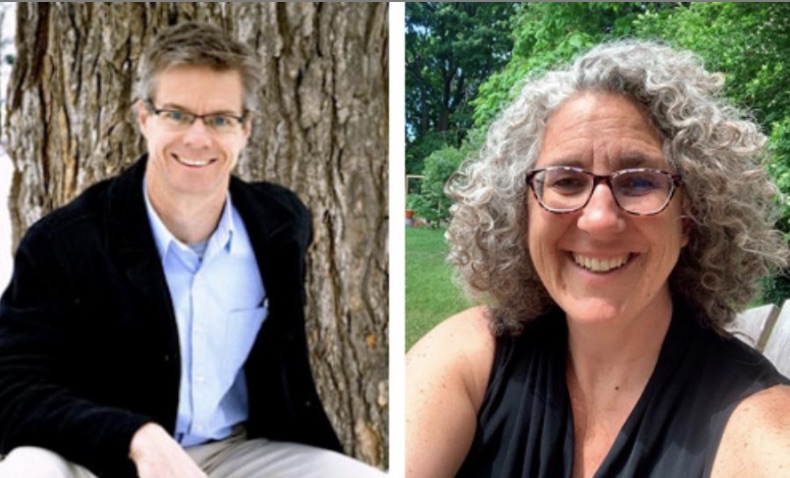
An initial result of these conversations is a series of four seminars looking at the eugenics movement that emerged in the late nineteenth and early twentieth centuries and that gained considerable traction in the US for decades to come, despite being unscientific and racially biased. The first two seminars took place in the fall semester, and the remaining two are slated for the spring (although no firm dates have yet been determined for those.)
Logan, who specializes in plant biology, cohosted the first discussion with Dana Waring, education director and cofounder of the Personal Genetics Education Project organized out of Harvard Medical School’s Department of Genetics. They talked about the origins of eugenics as a social movement that argued that it was possible to improve the human race and society by encouraging reproduction by populations with “desirable” traits and discouraging reproduction by people deemed “undesirable.”
Using the then-emerging science of genetics to provide legitimacy, proponents of eugenics were behind racist government policies like the prohibition of interracial marriage and the forced sterilization of individuals in certain populations—a policy that lasted until the 1970s. “We talked about the deep-seated prejudices in the thinking of some leading biologists a hundred plus years ago and the work they did,” said Logan. “They thought they were bringing about societal improvement!” It’s a sobering thought, he added, that the US eugenics movement helped inform early Nazi policies in 1930s Germany.
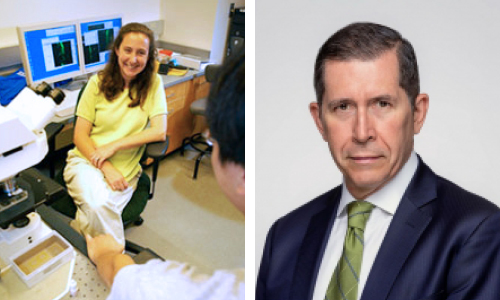
The second session featured Horch alongside noted anthropologist and former Bowdoin professor Scott MacEachern, who is now vice chancellor for academic affairs at Duke Kunshan University in China. This discussion, titled “Eugenics and the IQ Test,” revisited the theme of the misuse of scientific knowledge. Particular attention was paid to the problems of trying to define and measure intelligence. “Any documented difference in IQ scores between different racial and ethnic groups says more about inequality in societies than it does about intelligence,” said Horch. “Environmental and cultural factors are rarely well-controlled in these comparison studies,” she added.
There are important lessons to be learned from studying the impact of eugenics in the last century, said Horch and Logan. “Today we are exposed to brand new sources of information, vast troves of genomic information that we’ve never had before,” said Logan, “and in managing that there comes huge ethical responsibility.” He is referring to the era ushered in by the Human Genome Project—a multiyear international scientific effort to map all human genes. The thirteen-year project, which concluded in 2003, has given scientists the most accurate reading yet of the entire human genetic sequence and greatly increased our capacity to survey the genomes of humans and other organisms. The discovery, said Logan, marked a quantum leap in human knowledge. There are, however, problems with the huge data sets used in the project, said Horch, because about 70 percent of the genetic information sampled is from people of white European stock. “This points to an inherent bias in the data,” she explained, “so there is much in the way of complexity and richness that is not represented.”
